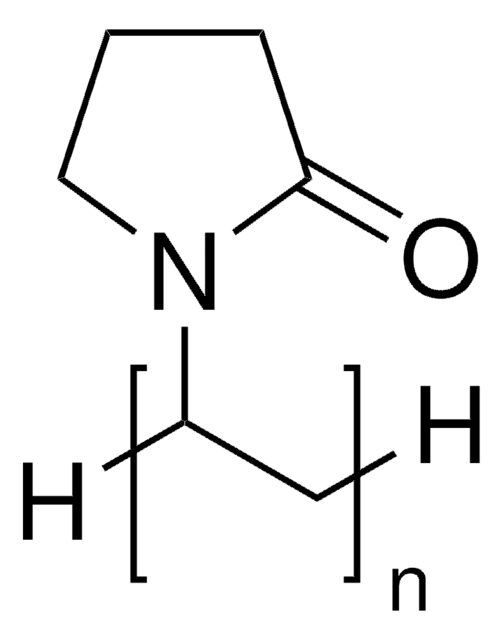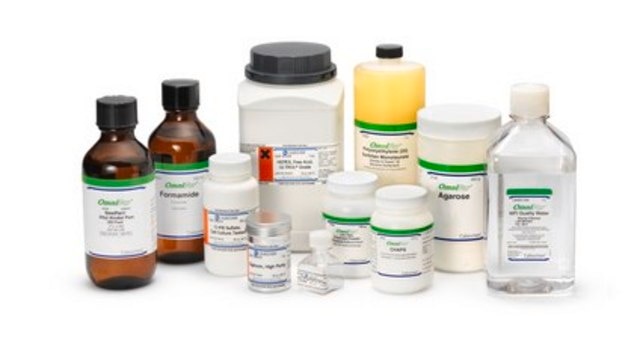PVP360
Polyvinylpyrrolidone
mol wt (number average molecular weight Mn 360kDa)
Synonym(s):
PVP, Polyvidone, Povidone
About This Item
Recommended Products
biological source
synthetic
Quality Level
form
powder
mol wt
(number average molecular weight Mn 360kDa)
viscosity number
80-100(lit.)
solubility
water: soluble 100 mg/mL
cation traces
heavy metals (as Pb): ≤5 ppm
SMILES string
C=CN1CCCC1=O
C=CN1CCCC1=O
InChI
1S/C6H9NO/c1-2-7-5-3-4-6(7)8/h2H,1,3-5H2
InChI key
WHNWPMSKXPGLAX-UHFFFAOYSA-N
Looking for similar products? Visit Product Comparison Guide
Related Categories
General description
Application
- A stabilizer in the synthesis of metallic nanoparticles (NPs) as it avoids the aggregation of NPs via repulsive forces produced by its hydrophobic carbon chains.
- A capping agent in the synthesis of rodlike hydroxyapatite (HAp) nanoparticles to control the nucleation and growth of HAp crystal.
- A synthetic polymer vehicle in the pharmaceutical industry for dispersing and suspending drugs.
- An emulsifier and disintegrant for solution polymerization.
Other Notes
wgk_germany
WGK 1
flash_point_f
Not applicable
flash_point_c
Not applicable
ppe
Eyeshields, Gloves, type N95 (US)
Certificates of Analysis (COA)
Search for Certificates of Analysis (COA) by entering the products Lot/Batch Number. Lot and Batch Numbers can be found on a product’s label following the words ‘Lot’ or ‘Batch’.
Already Own This Product?
Find documentation for the products that you have recently purchased in the Document Library.
Customers Also Viewed
Our team of scientists has experience in all areas of research including Life Science, Material Science, Chemical Synthesis, Chromatography, Analytical and many others.
Contact Technical Service
